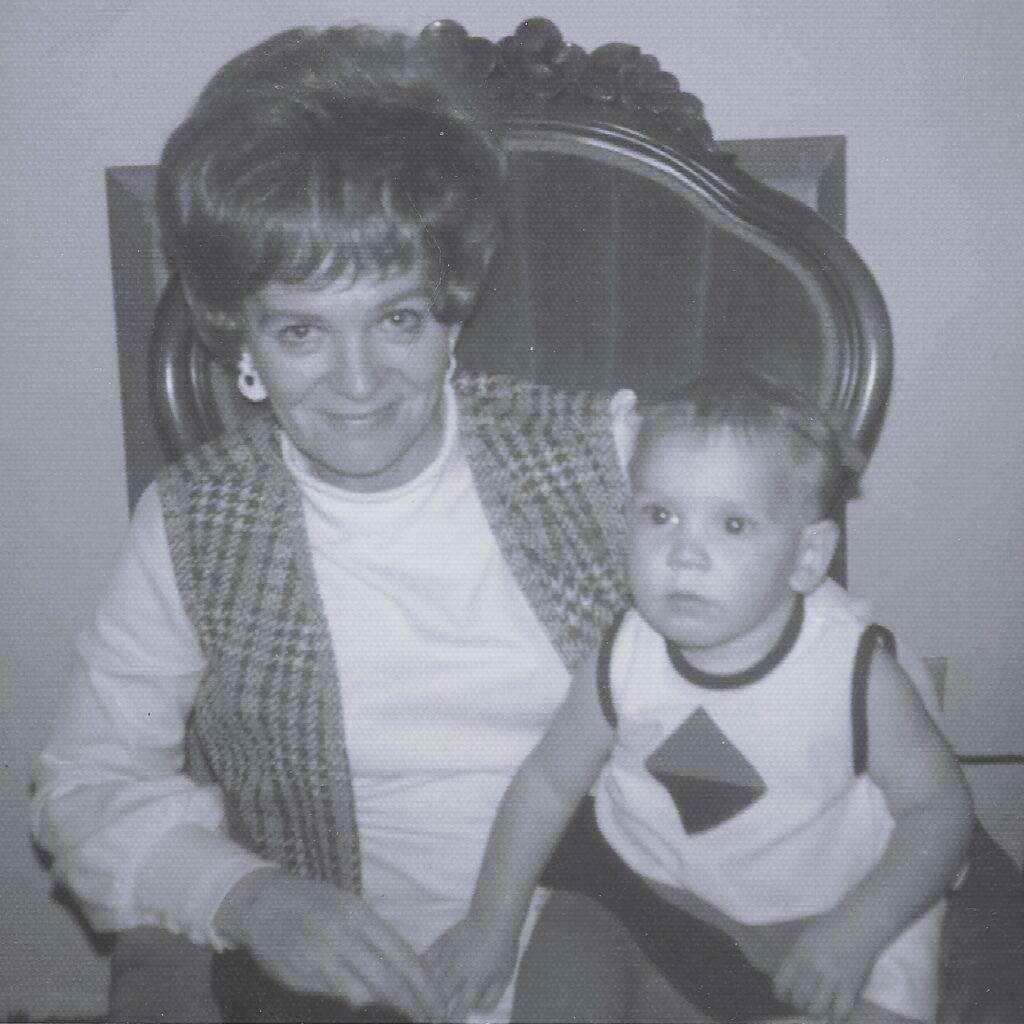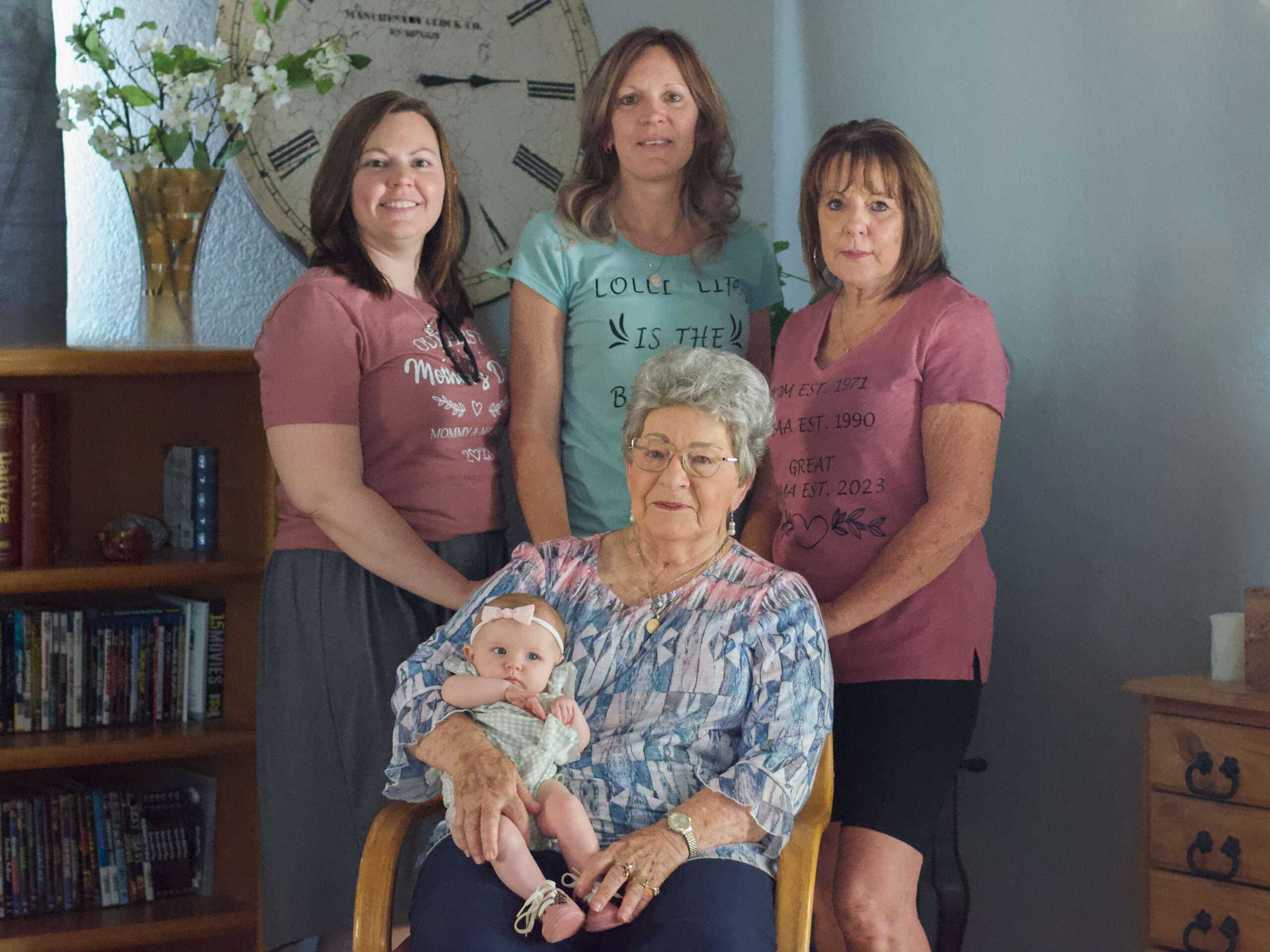In the tapestry of human connections, one thread that often goes unnoticed but plays a vital role in intergenerational relationships. These bonds, especially those between grandparents and grandchildren, hold a unique place in our lives. This blog post will dive into intergenerational relationships, exploring their definition, historical roots, modern dynamics, benefits, and challenges and envisioning their future significance. Join us on this journey as we uncover the threads that weave generations together.
Definition of Intergenerational Relationships
At its core, intergenerational relationships encompass the connections between individuals from different generations within a family. These connections bridge the gap between grandparents, parents, and grandchildren, forming a multi-generational tapestry of love and support.
Evolution of Grandparent-Grandchild Relationships
Grandparent-grandchild relationships have undergone a fascinating evolution throughout history. In ancient societies, such as those in ancient Greece and Rome, grandparents were admired for their life experiences and wisdom. They played pivotal roles in nurturing and educating their grandchildren, often taking on the part of mentors and storytellers. In these cultures, the oral tradition was a powerful means of passing down knowledge, and grandparents were the bearers of family stories, folklore, and practices.
As societies transitioned to rural lifestyles, grandparents remained central figures in family dynamics. Their accumulated knowledge of farming, animal husbandry, and herbal medicine was crucial to the family’s survival and prosperity. Grandparents were also instrumental in imparting cultural and religious values, instilling a sense of identity and belonging in their grandchildren.
Cultural Differences and Traditions
Different cultures around the world have celebrated grandparent-grandchild relationships in unique ways. In some cultures, such as those in East Asia, there is a deep reverence for elders, and grandparents are held in the highest esteem. They are often consulted for advice on important life decisions, and their wisdom is considered invaluable.
In contrast, some indigenous cultures in Africa and the Americas emphasize the responsibilities of children towards their grandparents. Younger generations are expected to care for and support their elders in their later years as a sign of respect and gratitude for the wisdom and guidance they have received.
How Intergenerational Bonds Were Perceived in the Past
Throughout history, intergenerational bonds were perceived as essential for the survival and well-being of the family unit. Older people were admired as an archive of knowledge and experience, serving as role models and sources of guidance for the younger generations. Caring for grandparents was seen as a moral duty in many cultures, reinforcing the importance of intergenerational relationships.
These relationships were not solely about transferring knowledge but also about emotional support and a sense of continuity. Grandparents often provided a stable presence in a changing world, offering a link to the past and a connection to family traditions.
Changing Family Structures
In today’s rapidly changing world, family structures are evolving, and the dynamics of intergenerational relationships are shifting. Nuclear families, consisting of parents and children, have become more prevalent. This shift can affect the role and presence of grandparents in their grandchildren’s lives. While nuclear families offer advantages, they may sometimes limit the opportunities for close intergenerational interactions.
The Role of Technology
Technology has become a double-edged sword in the context of intergenerational relationships. On one hand, it has the potential to bridge geographical gaps, allowing grandparents and grandchildren to connect through video calls, emails, and social media. This can be especially valuable when physical distances separate family members.
On the other hand, technology can pose challenges in understanding and navigating generational differences. The rapid pace of technological advancement can create a digital divide, where older generations may feel overwhelmed or left behind by the digital world that younger generations navigate effortlessly. Finding common ground and maintaining meaningful communication can be challenging in such cases.
Geographic Considerations
The proximity or distance between generations can significantly impact the strength of intergenerational relationships. Families living nearby often have more opportunities for frequent face-to-face interactions, strengthening bonds. In contrast, maintaining these relationships requires extra effort and commitment when considerable distances separate family members. Planning visits, coordinating schedules, and finding ways to stay connected become essential to bridge the physical gap and strengthen the intergenerational bond.

Emotional Support
Strong intergenerational relationships act as pillars of emotional support, offering solace and comfort during the most challenging phases of life. The bond between grandparents and grandchildren, forged over years of shared experiences and affection, can be a profound source of consolation, especially when faced with loss and grief. Grandparents’ empathy, understanding, and willingness to listen without judgment provide a haven where emotions can be expressed and processed.
In times of sorrow or turmoil, the mere presence of a grandparent can bring a sense of reassurance and stability. Their years of life experience often equip them with a unique perspective on coping with adversity, which they willingly share, helping their grandchildren navigate the turbulent emotional turmoil.
Wisdom and Life Lessons
Grandparents often serve as fountains of wisdom, offering a wealth of insights and life lessons that can shape the character and values of their grandchildren. Their accumulated knowledge, gained through decades of living and learning, provides a rich tapestry of guidance. These pearls of wisdom may encompass practical advice for everyday challenges, moral compasses to navigate complex ethical dilemmas, and the nuances of understanding the world.
The wisdom passed down through intergenerational relationships has a timeless quality, bridging the gap between generations and ensuring that the valuable lessons of the past continue to shape the future. Grandparents’ stories and life experiences are invaluable tools for imparting knowledge and fostering personal growth in their grandchildren.
Family Traditions and Cultural Heritage
Intergenerational relationships are pivotal in preserving and perpetuating family traditions and cultural heritage. Through these bonds, customs, rituals, and cherished practices are passed down from generation to generation. Grandparents serve as living repositories of cultural knowledge, ensuring that their family’s unique identity is not lost to the sands of time.
The transmission of cultural heritage occurs through storytelling, participation in cultural festivities, and the sharing of traditional recipes, songs, and crafts. Grandparents’ role in preserving these traditions fosters a sense of belonging and cultural identity in their grandchildren, creating a bridge that connects them to their roots and heritage.
Social and Emotional Development in Children
Intergenerational relationships are instrumental in the social and emotional development of children. Interactions with grandparents offer invaluable life lessons in empathy, respect, and patience. Children learn the significance of family bonds and mutual respect by observing the respectful and affectionate interactions between grandparents and parents.
Grandparents often provide a stable and nurturing presence, offering a safe space where children can express themselves without fear of judgment. This emotional security serves as a foundation upon which children can build healthy relationships with others, fostering emotional intelligence and empathy that extend beyond their family interactions.
Communication Strategies
Effective communication is the cornerstone of solid grandparent-grandchild relationships. This involves active listening, where both parties genuinely engage in conversations, empathize with each other’s perspectives, and communicate with an open heart. Grandparents can share their life experiences, and grandchildren can express their thoughts and concerns, creating a dynamic and enriching exchange of ideas.
Spending Quality Time Together
Spending quality time together is essential for nurturing these relationships and engaging in meaningful activities, whether playing games, cooking, gardening, or pursuing shared hobbies, which creates lasting memories and strengthens the connection. These bonding experiences foster a sense of togetherness and reinforce the unique bond between grandparents and grandchildren.
Resolving Conflicts and Navigating Generational Differences
Conflict resolution is vital to maintaining healthy intergenerational relationships, especially when generational differences in values and beliefs come into play. Open and respectful communication is essential in addressing conflicts. Effective strategies include encouraging dialogue, understanding each other’s perspectives, and finding common ground.
Moreover, recognizing that generational differences are natural and can lead to mutual growth and learning is essential. Embracing diversity in thought and perspective within the family can enrich the intergenerational experience, leading to a deeper understanding and appreciation of one another.
Communication Strategies
Effective communication serves as the cornerstone for building and strengthening grandparent-grandchild relationships. Within these relationships, several communication strategies can foster understanding and connection:
- Active Listening: Grandparents and grandchildren should practice active listening when conversing. This means giving each other their full attention, showing empathy, and validating their feelings and perspectives. Active listening builds trust and demonstrates that each party values what the other has to say.
- Sharing Experiences: Sharing personal stories and experiences can bridge generational gaps. Grandparents can recount their life stories, highlighting lessons learned and challenges overcome. In turn, grandchildren can share their experiences and interests, creating a mutual exchange of knowledge and understanding.
- Open and Honest Dialogue: Encouraging open and honest communication is essential. Grandparents and grandchildren should feel comfortable discussing their thoughts, feelings, and concerns without fear of judgment. This transparency promotes trust and emotional closeness.
- Respectful Communication: Respect for each other’s opinions, even when they differ, is crucial. Both parties should maintain a respectful tone and avoid dismissive or condescending language. Respecting each other’s perspectives fosters an environment where differences can be explored constructively.
Spending Quality Time Together
Spending quality time together is a fundamental aspect of nurturing grandparent-grandchild relationships. Engaging in meaningful activities and shared experiences creates lasting memories and reinforces the emotional connection. Here are some ideas for enhancing the quality of time spent together:
- Hobbies and Interests: Discover common interests or explore new hobbies together. Whether it’s gardening, cooking, crafting, or outdoor activities, shared interests provide bonding opportunities and create enjoyable memories.
- Family Traditions: Participate in family traditions or establish new ones. These traditions can include celebrating holidays, family gatherings, or annual outings that become cherished rituals and strengthen the family bond.
- Teaching and Learning: Grandparents can share their skills and knowledge with their grandchildren. Whether teaching a craft, cooking a family recipe, or imparting life skills, these moments create a sense of continuity and provide valuable learning experiences.
- Quality Time Without Distractions: Allocate undistracted time for one-on-one or small-group interactions. Turn off electronic devices, limit interruptions, and focus on each other. This undivided attention fosters deeper connections.
Resolving Conflicts and Navigating Generational Differences
Conflict resolution is vital in maintaining healthy grandparent-grandchild relationships, notably when differing values and beliefs come into play. Here are strategies for effectively addressing conflicts and navigating generational differences:
- Open Communication: Encourage open and respectful dialogue when conflicts arise. Grandparents and grandchildren should feel comfortable expressing their concerns, listening to each other, and seeking common ground.
- Seek Understanding: Try to understand the root causes of disagreements. Generational differences often stem from distinct life experiences and perspectives. Empathy and a willingness to understand each other’s viewpoints can lead to resolution.
- Compromise: Find compromises accommodating both generations’ needs and preferences. This might involve flexibility in traditions, respecting individual choices, or finding creative solutions that honor both parties’ perspectives.
- Respect Boundaries: Recognize and respect each other’s boundaries, whether they relate to personal space, privacy, or lifestyle choices. Setting clear boundaries helps prevent conflicts and ensures a harmonious relationship.
Generation Gap and Differences in Values
Generational gaps can create misunderstandings and disagreements. Family members must approach these differences with open-mindedness, empathy, and tolerance to overcome this challenge. Recognizing that diverse perspectives contribute to the richness of the family tapestry can promote understanding and harmony.
Cultural and Language Barriers
In multicultural families, language and cultural differences may challenge effective communication. Bilingualism and cultural exchange programs can be beneficial for overcoming these barriers. Grandparents and grandchildren can actively engage in language learning and artistic exploration to bridge these gaps.
Health and Mobility Issues
The physical well-being of grandparents can impact their ability to maintain relationships. Adaptability from all family members is essential in accommodating health and mobility challenges. Families can explore accessible activities, assistive technologies, and support networks to strengthen intergenerational bonds.
Trends in Modern Society
Considering current societal trends and demographic shifts can help anticipate the future of intergenerational relationships. Changes in family structures, technological advancements, and evolving cultural norms will influence how these bonds are formed and maintained.
Implications for Aging and the Younger Generations
These relationships will continue to influence the well-being of older and younger generations as society evolves. Recognizing the reciprocal benefits of intergenerational
Encouraging and Preserving Strong Bonds
Actively nurturing and preserving intergenerational relationships is vital for their continued strength and relevance. Initiatives that promote intergenerational interactions, such as community programs and family gatherings, can help sustain these valuable connections for future generations.
Unfiltered: My Real -Life Encounter
The grandparents in my life hold a special place in my heart, and their presence has graced me with some of the most cherished memories and unique perspectives. I’ve been fortunate to have not just one set of grandparents but several, thanks to my parents’ divorces and subsequent remarriages. This blessing extended my family tree; I even had the privilege of knowing my great-grandparents throughout my childhood.
One of my grandmothers will always be synonymous with summer, as she constantly had fresh watermelon slices waiting for us during those warm months. Our mornings were filled with the delightful aroma of eggs from her chicken coop, perfect for making French toast. We were also responsible for tending to the various animals on her property, teaching me valuable lessons about caring for living creatures.
Another grandmother, who had a taste for the finer things in life, made me feel like a prince when she took me shopping at high-end clothing stores. I only shared these experiences with her, as we didn’t have much money while I was growing up. Those times felt incredibly special, giving us countless opportunities to bond. I’ll never forget the excitement of sitting in first class on an airplane during a trip with her when I was just twelve.
A third grandmother entered my life when I was a young adult, and she taught me the beautiful lesson that family isn’t limited to blood. She welcomed me and my children with open arms, and her love and acceptance were genuinely heartwarming. While I’m now left with one grandmother out of the three, I treasure every moment we spend together. The relationships I’ve cultivated with these remarkable individuals are eternally cherished, and I am so grateful for the love they’ve brought into my life.

Final Thoughts
We must recognize their enduring importance as we wrap up our exploration of intergenerational relationships. These connections enrich our lives with wisdom, love, and tradition. Let us not take them for granted but actively work to strengthen and preserve these bonds. In doing so, we build stronger families and a stronger society that cherishes the ties that bind us across generations.

